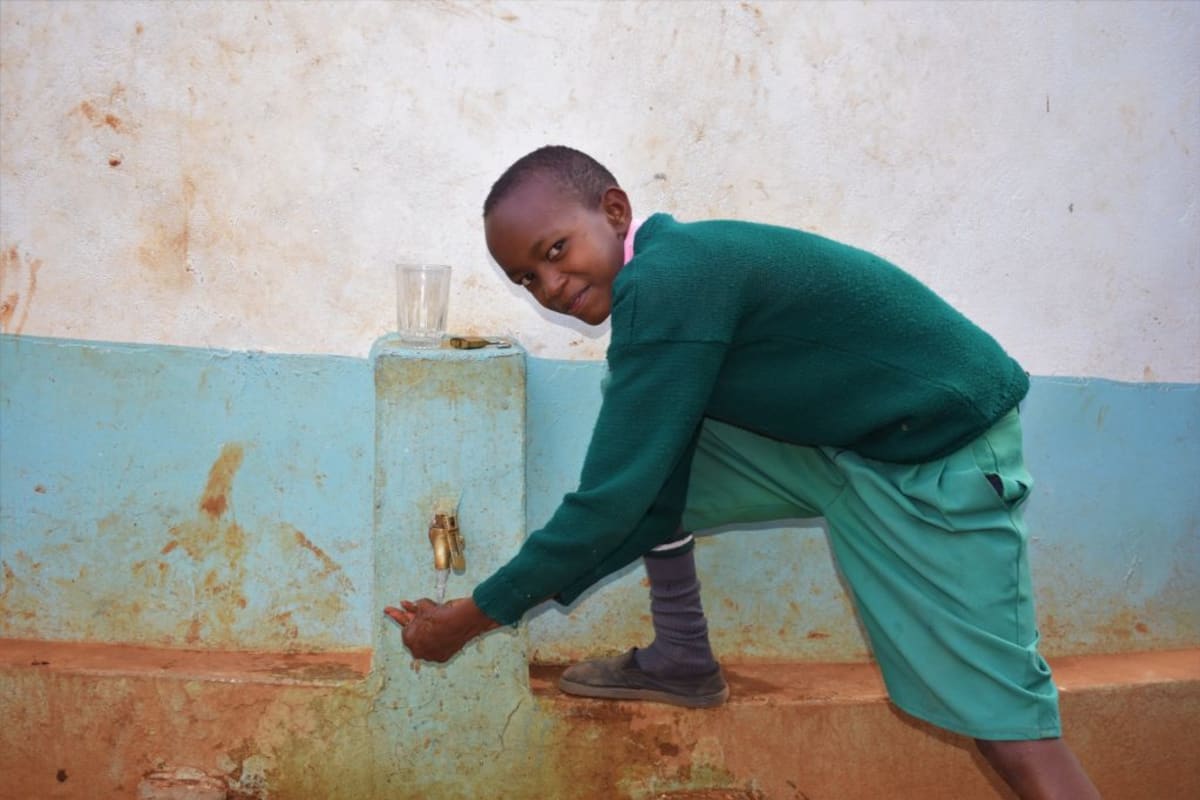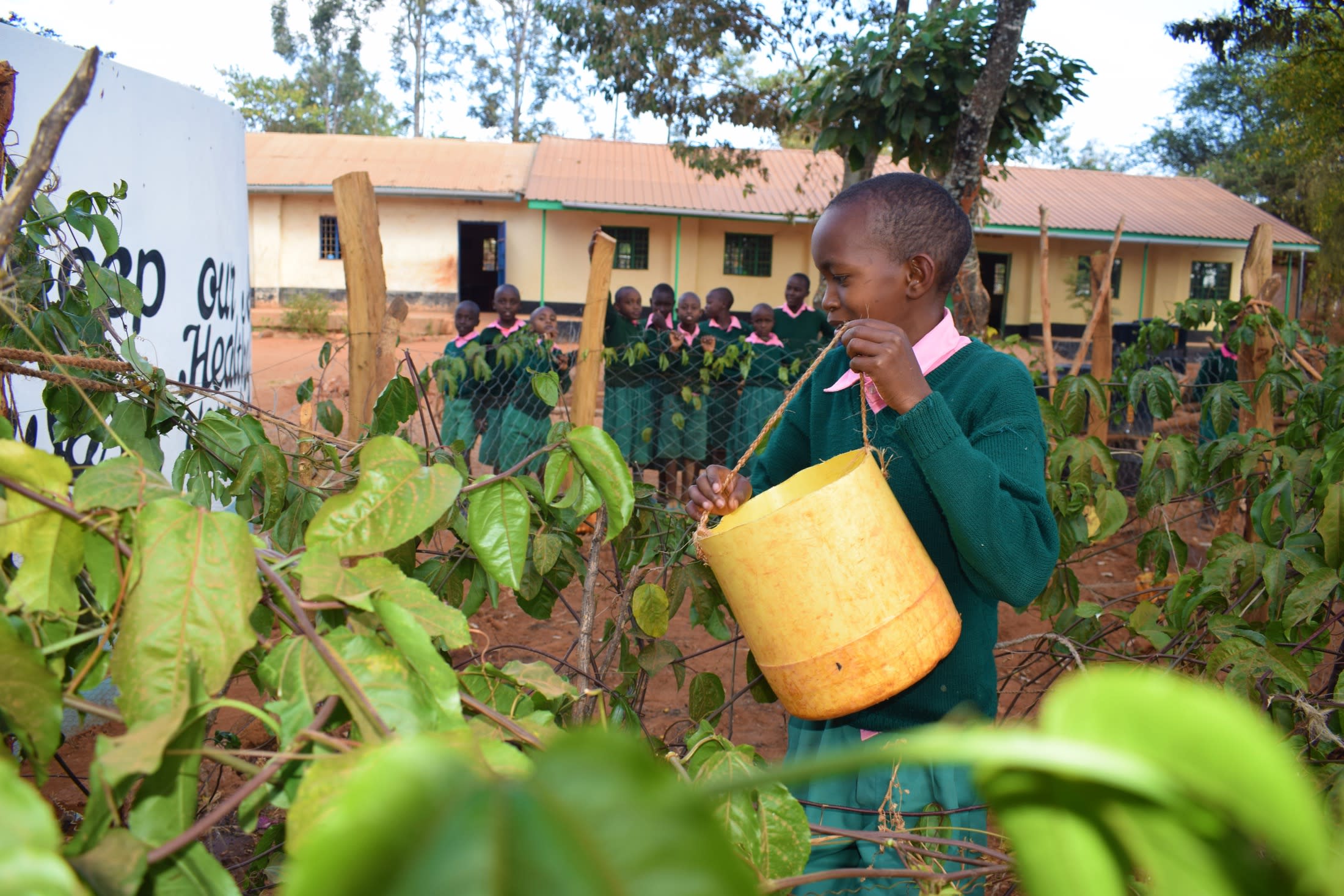Itulu Primary School was started in 1993 as an initiative by local parents who wanted a school in their locality to help their children, who were traveling long distances to access an education. The school has grown through support from parents, the Mbooni Constituency Development Fund, and the federal government.
The 113 students at the school must report to school by 6:30 am with a jerrycan of water. The school lacks a good source of clean water for the school population. The school currently depends on pupils and parents bringing water to school for all of the school's water needs, including cooking and drinking.
"As a school, we only have a small plastic tank and students bringing water for all the school water needs. I would say it is an unfortunate situation, but it is the only option for us. We are a needy school, especially in the area of water access considering the modern times of COVID-19 and the water demands involved," explained Deputy Headteacher Eliud Mbatha.
The school has had cases of waterborne and water-related diseases reported amongst students, such as amoeba and typhoid. This is associated with consuming water from open river sources and from other, unknown sources. Teachers cannot monitor where pupils get their water before school, hence the varied, unsafe, and unknown sources.
Cleaning takes place until 7:00 am. Next, morning preps run up to 7:45 am. The students then go for the morning parade, where each of them is checked to have brought the required amount of water. Those who fail to bring water are punished. Carrying water to school means that students have to look for it either after school for the following day, or very early in the morning on their way to school.
"Our school life has not been easy. We have to carry water to school for cooking and for drinking. Sometimes I feel tired by the time I arrive at school. Yet, I always want to pass my exams and excel in life," said student Kalekye M.
Students are burdened with carrying water to school, affecting their overall concentration and performance in academic activities. Construction activities at the school have been expensive because of the cost of purchasing water since it is not available within the school. Additionally, the state of hygiene and sanitation is inadequate because the latrines are never cleaned due to a lack of water.
Rain Tank
We will build a 104,000-liter rain tank for this school, making the others look tiny in comparison. Because of how rarely it rains in Southeastern Kenya, this tank's large volume is designed to store as much water as possible during the seasonal rains, making more water available through the dry months. This water will benefit the students, teachers, and additional staff.
Parents will mobilize the materials needed for construction, including sand, stones, and water. They will also lend their strength and time to help with the construction. We will complement their materials with a skilled artisan to lead the project and provide the tools, lumber, metal, cement, and gutter system.
As soon as the tank has time to cure, it can begin collecting rainwater for the school's use.
Training
We will train students and staff on sanitation, hygiene, and other topics for one day. Those in attendance will form a school health club that will promote good hygiene and sanitation practices at school and home. They will learn all of the steps to proper handwashing, how to treat water, and how to keep their environment clean. The school will also be taught how to oversee best and maintain their new rain tank and handwashing stations.
Handwashing Stations
A total of 3 handwashing stations will be installed upon the project’s completion and before training. These are 1,000-liter plastic tanks fitted with three taps each, allowing nine students to wash their hands at once. The student health club and school management will be responsible for making sure the tanks are filled with water and that a cleaning agent such as soap or ash is always available.

 Rainwater Catchment
Rainwater Catchment
 Rehabilitation Project
Rehabilitation Project


































